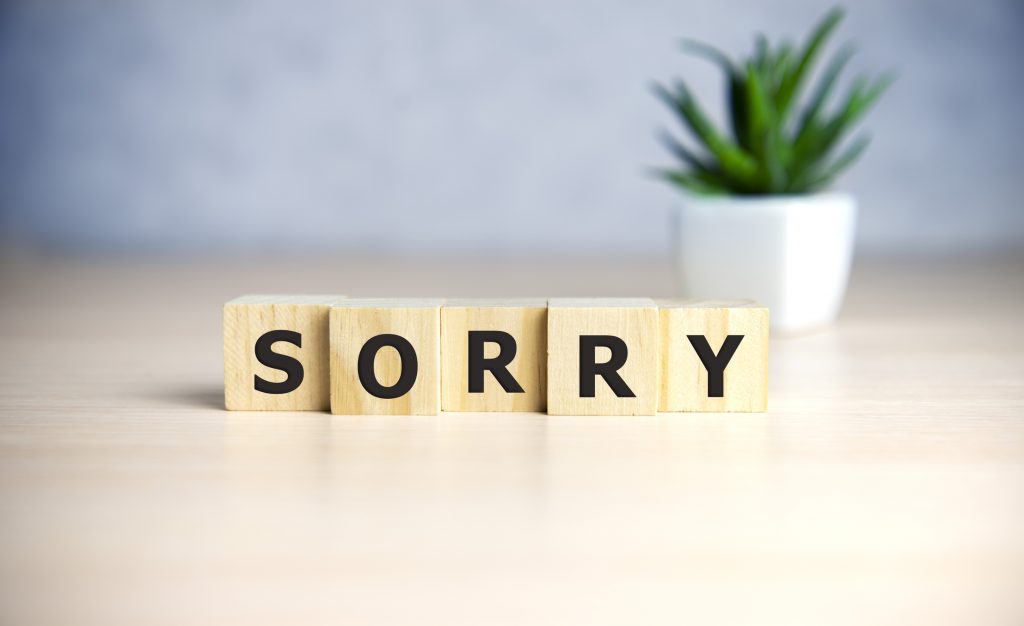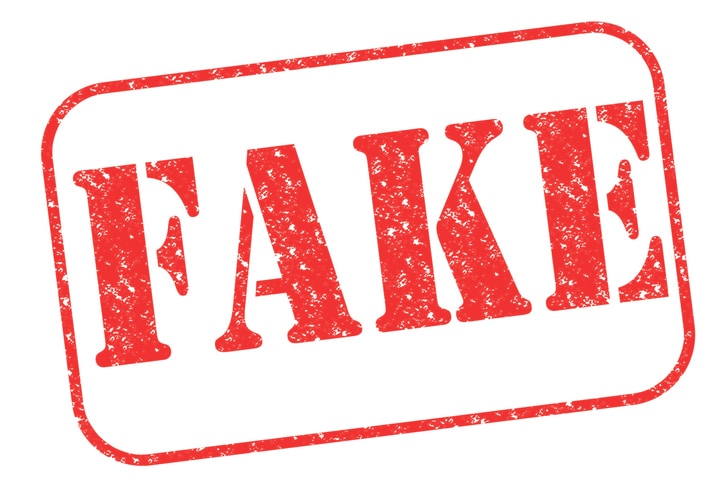In nearly every crisis simulation exercise we run, the issue of saying sorry raises its head. Should you say sorry in a crisis? Does it constitute an admission of liability? And what’s the damage to your reputation if you don’t say sorry?
It always ends up with a fierce debate. Everyone agrees on the principle of showing empathy in a crisis, but no-one ever agrees on whether you should say sorry. Some companies have it written into their crisis manuals that you never, ever say sorry, whatever the situation. That’s often on the advice of their in-house legal team, who may not be reputation specialists (although I’m glad to say this is changing). Others are more open.
The psychology of apologising is interesting. There’s a great podcast by Brené Brown, where she interviews psychologist Dr Harriet Lerner about what constitutes an apology, and what makes a good apology. There are lots of reasons that we should apologize – it goes a long way to healing hurt and putting right a wrong. But it’s incredibly hard to do.
Lerner says that if you apologize and then justify your behaviour, that’s not an apology. I know I’ve been guilty of that in my home life. Saying “I’m sorry I shouted, but you’re being really difficult,” isn’t an apology, it’s a justification.
An apology has to be about the other person, not about you. It has to stand on its own. “I’m sorry we did this, it was wrong, and we’re putting it right by doing XY and Z.” You may want to explain the circumstances that got you there, but do that very carefully – and remember that the point of an apology is to repair damage and hurt, not to explain something you’ve done.
To really do that well, you have to have genuine empathy. That’s hard in a crisis situation. I always tell people to put yourself in the shoes of the person or people affected by the crisis. How are THEY feeling? What can you do to help them feel better? What do they need to hear from you? That’s at the root of a good apology.
Finally, a good apology comes with action. “This is what we’re doing to put it right, or to change, or to make the situation better for you.”
The dark art of the non-apology
The non-apologies we’ve all got used to hearing (politicians excel at these) can end up doing more damage than good.
Take the much-mocked apology from Priti Patel at the beginning of the pandemic, when the government faced criticism that it hadn’t supplied enough protective equipment to frontline NHS staff. Patel was asked repeatedly to apologize, and under pressure in an interview, she said: “I’m sorry if people feel there have been failings.”
That’s clearly not an apology, and people saw through it. There were some brilliant memes on Twitter: from “I’m sorry if you feel you’ve died,” to my favourite, a man saying to his wife: “I’m sorry if you feel like I have eaten your Easter egg.” What Patel was saying was she was sorry for how people felt, not for the lack of PPE.
https://twitter.com/liamwithnail/status/1249298282809081857
She came under fire another time, too, when she was accused of bullying, saying: “I’m sorry that my behaviour has upset people.” Again, this isn’t apologizing for the behaviour, it’s apologizing for the fact that people are upset by it. It’s actually putting the onus back onto the very people who have called for the apology in the first place. That makes people feel resentful, and as though they’ve been deliberately misunderstood, or not heard at all.
We see through this kind of apology. It makes us feel worse, not better. And, it’s hollow, because, critically, it’s not followed up by any action – or any change in behaviour.
Organisations will often say they’re worried about saying sorry because of the legal implications. Of course, you should always seek legal advice, and I’m not a lawyer. But when they say to me: “What if I’m seen to be liable?” the first question I ask is: “Are you liable?”. If the answer is yes, then frankly, you might as well say sorry – it could even help to calm the situation and save your reputation.
And if you’re not liable but you are implicated in the crisis, you need to calculate the damage you could do in the long-term to your reputation by NOT apologising. Is it going to be greater or less than the cost of saying sorry?





